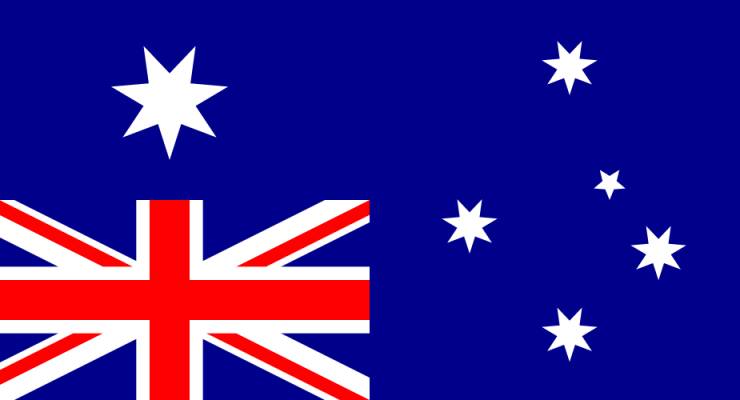
It’s a special time of year. The religious holidays and the celebration of the new year — characterised by excessive spending, materialism, gluttony and drunkenness — are behind us. We find ourselves bearing down on our so-called national holiday with its associated intractable and thus utterly pointless debate on whether it should be retained or moved.
January 26 is not the anniversary of Federation. Nor is it the anniversary of the ratification of the Statute of Westminster, when the Parliament in 1942 freed itself of subservience to British legislation. It’s not any of the three anniversary dates upon which the rights of appeal to a foreign court, the Privy Council, were rolled back.
It bears no relevance to those éminences grises, Henry Parkes, Andrew Inglis Clark or Samuel Griffith. Nor was it a date of any consequence to the constitutional conventions (any of the three of them), the referenda on Federation or the referendum to count Aboriginal people in the census and allow the federal Parliament to make laws about them.
January 26 has nothing much at all to do with Australia as a national political construct. It has plenty to do with New South Wales, which is a different and oft-forgotten point. But that scarcely concerns most of us.
We have it nonetheless. Gazetted — ahistorically — as our national day. A grotesque distortion of history that provides us with perverse comfort.
We have a long and inglorious track record of lying to ourselves about our history. Aboriginal Australians weren’t worthy of citizenship, and needed to be removed from their families. The ANZACs were, without exception, chivalrous, valorous and selfless.
We’ve had assurances about children overboard, weapons of mass destruction, climate change being a widespread scientific conspiracy to secure grant funding, and the pressing national security need to resolutely refuse asylum to those who need it and qualify for it (but only if they arrive by boat).
We lie so much that our entire nation may well be no more than a myth.
So, we could retain the date. Or we could move it. But if we move it, we’ll never come close to a consensus on which date would be better.
And this debate will drag on. An annual psoriatic itch that becomes inflamed mid-January before being soothed by the balm that is the public holiday. The debate distracts us from the real issues we should be considering and doing something about: child protection; an overloaded criminal justice system; the wellbeing of vulnerable people; adequacy of social services; international obligations; and the humanitarian crisis in Yemen.
The list appears endless. And each item on it is more important than the malaise of national vanity.
So, here’s what I would do: abolish the national day.
I don’t mean expunge January 26 from the calendar. Just strip it of its status. If New South Welshmen want to raise the flag (the NSW flag, or the more historically accurate raising of the Union flag) and prance about in breeches and tricorn hats, let them. But the rest of us can ignore it.
Let’s have a non-national day instead. A day of flag lowering. A day on which we don’t use the word “Australia”. A day for sober reflection on the ills and vicissitudes of nationalism — the dangers of the cult of superiority.
This article was first published on The Northern Myth blog.







Amen to that. 26 January is irrelevant for many reasons but utterly irrelevant to us folks in the West.
That could work. I like the idea of moving it to an date which already has some form as a pleasing, uncontroversial national day – I refer to Wattle Day on 1 September.
If we want an historically accurate flag, it should be either
– the Union flag comprising just the English and Scottish flags – pre the inclusion of the diagonal red cross of St Patrick, which was only incorporated in 1801, or
– the red ensign for the Royal Navy
Not exactly. The red and blue ensigns were both used quite frequently during WWI and since especially on recruiting material, before the blue was made official.
The solution is obvious: declare Australia a republic on, say, 1 September and make that our National Day. Then all the other days will have their proper status. 26 January will be the day Britain landed soldiers to make a British settlement here, ultimately at the expense of taking all land from our original inhabitants by intermittent war and administered roundups, with many casualties, and there will be federation day, etc, etc.
I’m with you, Ian. I’ve said for many years that Australia’s national day, if we must have one, should be the day the nation shrugs off that other country’s royal parasites and declares itself to be a republic. And yep, September 1 sounds fine, has a good ring to it; why not? Trouble is, if the LNP ever resume governance in some future period, after the decision to go it alone has been taken by a large majority of Australians and those wreckers have no choice but to proceed with it, I’ll bet you this: they pick the 26 January as the day to sign the republic into being. Odds on.
Over a long life-time, I have never celebrated Australia day on January 26th. Australia became a nation on January 1st, 1901…it didn’t exist before then. Only as a continent split into various states and territories.
January 26th is NSW day, and since I don’t live there, why should I be forced to celebrate the nation on a state day?
Despite the New Year day, historically, January 1st is the ONLY Australia Day which should be celebrated or commemorated.
Good one, Dean!